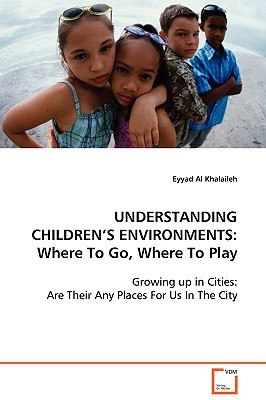
- We will send in 10–14 business days.
- Author: Eyyad Al Khalaileh
- Publisher: VDM Verlag
- ISBN-10: 3639101049
- ISBN-13: 9783639101041
- Format: 15.2 x 22.9 x 1.3 cm, softcover
- Language: English
- SAVE -10% with code: EXTRA
Reviews
Description
Watching children play in the outdoors is inspiring: climbing trees; discovering insects, animals and birds; running and shouting; playing games; letting their imaginations run wild; and story-telling. We can relate to this as adults because we were all children once. However, children's ability to experience the outdoor environment is under threat. Fear and risk, lack of investment, overcrowding and poverty are all re-stricting their opportunities to spend time outside. Children are a powerful symbol of the future. They provide us with a compelling reason to improve the urban environment. This symbolism has not been lost on policy-makers. The most widely accepted definition of sustainable development is the one used in the 1987 Brundtland report: "Develop-ment that meets the needs of the present without compromising the ability of future generations to satisfy their own needs". Yet, despite the frequency with which they feature in environmental discourse, children have played only a passive role in the development and implementation of urban and environmental policies.
EXTRA 10 % discount with code: EXTRA
The promotion ends in 19d.13:54:36
The discount code is valid when purchasing from 10 €. Discounts do not stack.
- Author: Eyyad Al Khalaileh
- Publisher: VDM Verlag
- ISBN-10: 3639101049
- ISBN-13: 9783639101041
- Format: 15.2 x 22.9 x 1.3 cm, softcover
- Language: English English
Watching children play in the outdoors is inspiring: climbing trees; discovering insects, animals and birds; running and shouting; playing games; letting their imaginations run wild; and story-telling. We can relate to this as adults because we were all children once. However, children's ability to experience the outdoor environment is under threat. Fear and risk, lack of investment, overcrowding and poverty are all re-stricting their opportunities to spend time outside. Children are a powerful symbol of the future. They provide us with a compelling reason to improve the urban environment. This symbolism has not been lost on policy-makers. The most widely accepted definition of sustainable development is the one used in the 1987 Brundtland report: "Develop-ment that meets the needs of the present without compromising the ability of future generations to satisfy their own needs". Yet, despite the frequency with which they feature in environmental discourse, children have played only a passive role in the development and implementation of urban and environmental policies.


Reviews